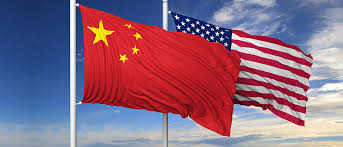America is trying to change the way trade rows are settled

ONE of President Donald Trump’s more improbable achievements has been to make international trade negotiations into front-page news. Less visibly, his officials have turned the legal systems for settling trade disputes into hotly contested topics. Not only is dispute settlement one of the last obstacles between America and Canada reaching a new North American Free Trade Agreement (NAFTA), it is also central to Mr Trump’s assault on the World Trade Organisation (WTO), the guardian of the global rules-based system of trade.
A trade deal is a bit like the rulebook of a game in which the players are of very different sizes and speak a host of different languages, and so may have different ideas of what constitutes fair play. A dispute-settlement system is the referee, deciding whether the rules have been broken. Its very existence may discourage cheating.
The system Canadian and American negotiators are arguing over dates from 1986, when the two countries first started negotiating a trade deal. The Americans wanted a simple, tariff-slashing agreement, but the Canadians wanted to go further, harmonising defensive tariffs, known as anti-dumping and countervailing duties, which are levied on imports supposedly unfairly priced at below the cost of production. The Canadians hoped thereby to protect their exporters from American fire. American negotiators at first declared that Congress would never agree to this; the Canadians threatened to walk out.
In what—at least among trade diplomats—became a legend of dealmaking, at 9pm on the day of the deadline the Americans compromised. They offered what became known as “chapter 19”. Rather than curbing America’s use of defensive duties directly, it set up a system of judicial review. If either country imposed an anti-dumping duty on the other’s exports, the injured exporter could appeal to a panel of five judges, who would assess whether the duties were consistent with the applying country’s domestic law. Chapter 19 was incorporated into NAFTA when the broader agreement was created in 1993.
Today American and Canadian negotiators are locked in battle once more, this time over chapter 19 itself. Robert Lighthizer, the United States Trade Representative (USTR), wants to scrap it. Unless Canada accepts his demands by September 30th, he has said that he will sign a deal with Mexico alone, which is the other member of NAFTA and has already agreed to scrap the offending chapter.
Mr Lighthizer’s opposition to chapter 19 appears to be based on principle more than on economic interest. American exporters have used chapter 19 successfully, for example to dispute Mexican tariffs on beef, chicken and corn syrup. Gary Horlick, a lawyer who has argued in front of chapter 19 panels, says that for farmers and ranchers, going through Mexican courts is “not a realistic option”. He adds that although they could fight the Mexican government at the WTO, if they win under chapter 19 any illegal charges are refunded. At the WTO, they are not. But Mr Lighthizer seems to regard chapter 19 as an affront to America’s right of self-defence. The USTR has described himself as a “sovereigntist”, and resents the idea that foreigners would be able to challenge American law anywhere other than in an American court.
The Canadians may well decide that chapter 19 is not worth sacrificing the entire deal for. Its panels presided over only 23 decisions between 2007 and 2017 (although its mere presence may have deterred other misbehaviour). And Canada has more to lose this time if the talks fall apart, especially if Mr Trump carries out his threat to levy tariffs on Canadian cars in retribution.
If Canada caves in, the Trump administration will have won a battle in a bigger war. September 30th is also the last day of Shree Baboo Chekitan Servansing’s term on the WTO’s appellate body. Ordinarily, Mr Servansing, a Mauritian judge, would have been reappointed. But the administration has been blocking his renewal, having also stopped the appointment of three other judges. The number of appellate-body judges will drop from four to three, the minimum required to hear a case. If any of the three has a conflict of interest, the case in question cannot be heard.
American officials complain that the WTO’s appellate body has chipped away at their country’s sovereignty and has strayed beyond its remit. In effect, they accuse it of hobbling America’s ability to defend itself against, for example, surges in imports or subsidies doled out to Chinese state-owned enterprises.
On September 24th Canada circulated a proposal to assuage America’s concerns to other WTO members. The European Union has also made suggestions. But it is unclear that either of the disputes over disputes can be settled in this way. As the most powerful player on the field, America may simply prefer to be the referee as well. The rules will be what it says they are.
This article appeared in the Finance and economics section of the print edition under the headline “A matter of dispute”
